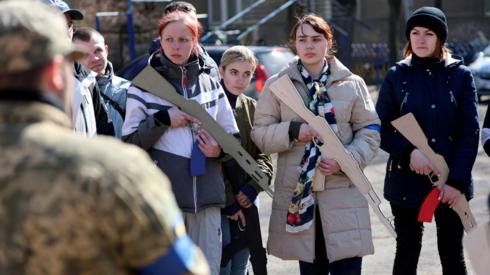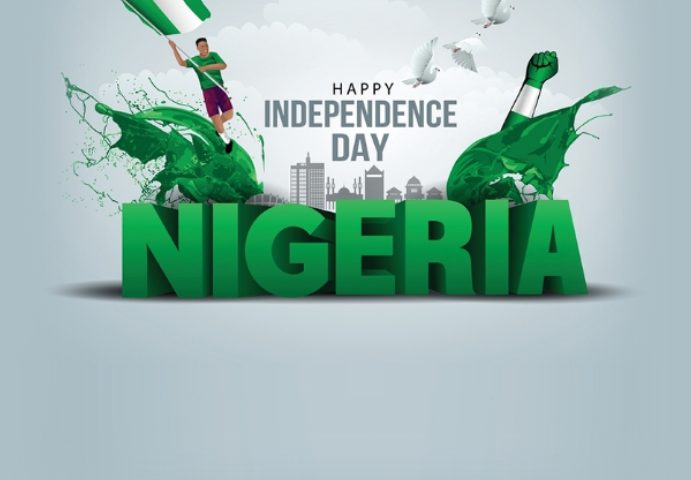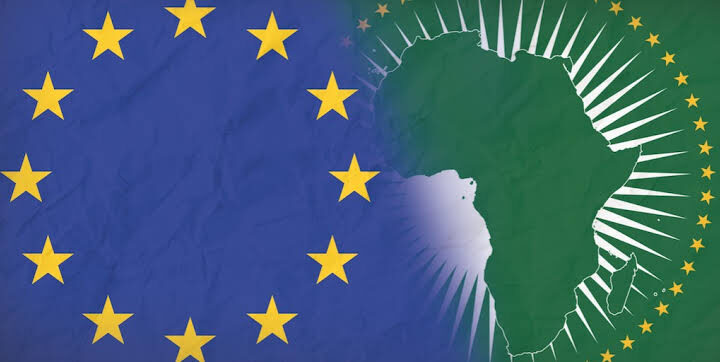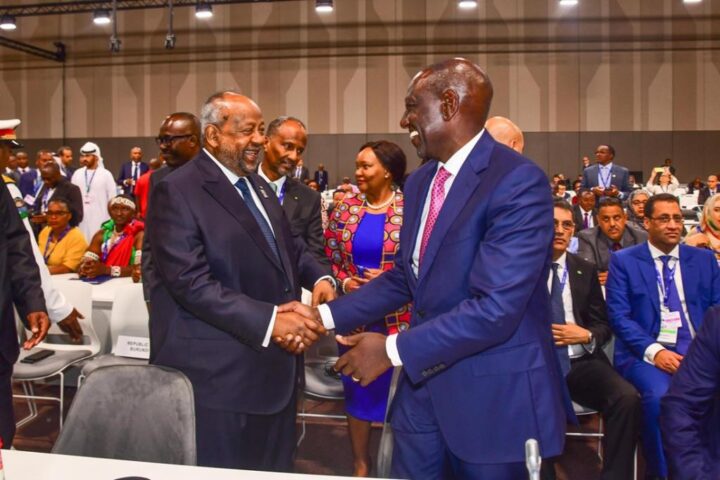Since the prehistoric times, the quest for global economic domination, empire building and national security has fueled wars and conflicts around the world.
After World War II, which ended colonialism, the Soviet Union and the US emerged as the major power axis of the world, representing the east and west respectively. But ever since, they have continued to entice many other powerful and less powerful nations within and without to join them.
Join our WhatsApp ChannelThe US appears to be smarter, first engineering the fall of the Soviet Union in 1991, now replaced by the Russian federation. The US, with its allies in Western Europe, continue to advance eastwards far more than Russia is advancing westwards.
By 2020, 14 eastern European countries, almost all of whom were former Soviet republics, had joined the North Atlantic Treaty Organization, NATO, a security alliance of the West. Russia has watched in frustration, alleging furiously that NATO has not honoured agreements about cessation of expansion eastwards. The move in 2021 to get Bosnia & Herzegovina, Georgia and Ukraine to join NATO further incensed Russia, which has complained stridently of the security implications. Russia therefore rolled its tanks and artillery into Ukraine, February 24, drawing widespread condemnation, sanctions and isolation from much of the West, but insistent that it is undertaking a defensive military operation in self-defense. Recall that the US responded strongly in 1962 when the Soviet Union stationed ballistics in Cuba, America’s neighbours.
It may seem trite now to regurgitate the full scale political mathematics that explains Russia’s military dance in Ukraine. Rather, a critical aftermath is the realignment that may decide how the world sees itself in the coming days, weeks and years.
For instance, despite the seeming global outcry against Russia, rich nations like Saudi Arabia, Qatar, China and the United Arab Emirates (UAE) have either refused to condemn Russia or to key into the rain of economic sanctions inundating Russia. Rather, they are going closer to Russia, spurning and surprising the US, which has roundly condemned the recent visit of Syria’s president Bashir al-Assad to the UAE, the first such foreign visit since 2011. The US has also been alarmed by the trade deals between Saudi Arabia and Qatar on the one hand and Russia and China on the other.
The UAE, Qatar and Saudi Arabia are known Gulf friends of the West, but the countries’ handshake across the East is said to be in protest of the kid gloves with which the US is treating the Iran nuclear deal. Israel is monitoring the nuclear deal too, and may soon surprise the US. China has been a known ally of Russia, and is largely suspected by the US of preparing military aid to Russia, a move that has received stern warnings from the West. China, in general, is being cautious due to its non-military orientation outside its borders in recent memory. In addition, its burgeoning economy owes a lot to western capitalism, and so, China is still urging restraint, but insists it will assist if the Kremlin calls.
The presidents of Brazil, China, India and South Africa (BRICS bloc) have tilted towards neutrality, with South Africa being the only one to demand troops withdrawal from Ukraine. China asserts Russia’s rights to self-defense and is asking the West to consider Russia’s security interests. China’s actions may however be more understandable as it shows a Moscow-like orientation towards Taiwan, and may move or retreat towards Taiwan based on the Russia-Ukraine outcome.
Notably, however, the New Development Bank (NDB) of the BRICS nations have suspended its operations in Russia much as the China-based Asian Infrastructure and Investment Bank (AIIB). The effects of the war in Ukraine and the ensuing western sanctions informed the move by the NDB and AIIB, affirming the strength of sanctions. Moreover, Russia is the largest shareholder of the NDB. One of the most audacious sanctions was the ouster of the Russian Central Bank and other financial institutions from the Society for Worldwide Interbank Financial Telecommunication (SWIFT) system, a global messaging system that facilitates global monetary transactions.
But China, Russia and India may up the antics by introducing an exchange system that circumvents the SWIFT and its dollar agent. For instance, in response to its ouster from SWIFT, Russia is collaborating with China and India to further strengthen China’s Cross-Border Interbank Payment System (CIPS), a yuan-based international monetary exchange system that seeks to sideline the dollar.
The effects this will have on global capitalism may undermine the reign of the dollar given the size of trade between the West on the one hand and China, Russia, and India on the other. China is the world’s second largest economy, with a GDP (as of 2020) of 14.9 trillion as against the US, which is worth $20.94 trillion. China’s trade with the US is worth $615.2 billion in goods and services trade, smaller than China’s trade with the EU, which is worth $709 billion. Boycotting the SWIFT will also boost the acceptance of the yuan around the world.
Already, nations such as Turkey continue to trade with Russia, showing signs that they do not trust the West for future economic alliance, and this may be a major factor in how other nations deal with Russia and SWIFT. If other nations express interest in a new, non-dollar based exchange system, it may provide an alternative to the alleged bullying from the West.
The gulf countries recently alleged that the US was dancing to the tune of spirits in its dealings with Iran’s nuclear ambitions, which threatens many gulf states. Yet, with the dependence of CIPS on the SWIFT, Russia may get a temporary reprieve from China, though the move to circumvent a dollar driven international economic system will surely receive fresh boosts, as Russia hit a record $146.9 billion in bilateral trades with China mainly in areas such as energy, aviation, telecommunication, agriculture, and media. However, though Russia’s impressive $640-billion-dollar reserve may still not mean much without access to SWIFT, Russia may still get by with its very little dependence on foreign loan.
The opportunity cost for the West may be humongous. Perhaps, it may not be for Russia’s ferocity in bombarding Ukraine that the latter’s president, Volodymyr Zelensky, gave up his county’s NATO ambitions. It may be a means to thaw tensions, achieve a ceasefire, and halt the drift of the US gulf friends towards the East. This, though, is not to underestimate the blitzkrieg under which Ukraine has come recently with Russia using supersonic equipment to take out weapon’s storehouses before they are unwrapped for use.
But, so much for the global analysis. What is in it for Africa whose politics and economy have tottered terribly under the gerrymanders of the global powers? The African Union has so far refrained from chiding Russia for its invasion of Ukraine.
Kenya has been the most vociferous against Putin despite having Russia as a major importer of Kenya’s tea. Can Africa tap into the unfolding anti-dollar trade moves to free their economies from the problems induced by unfavourable exchange rates. Buying raw materials using the dollar at terribly low rates against local currencies has stalled Africa economies. America’s national legal tender, the dollar is the world’s main medium of exchange, and causes import dependent African nations to experience trade deficits. Nigeria may rake in more money in oil exports due to rising export prices. However, the country will regret its 22-year importation of refined fuel as it will spend more on importation than exportation.
Africa can move in sync with India and Russia which are looking to China’s yuan to undercut the dollar. China has a trade volume in excess of $180 billion with Africa. As Patrick Smith, editor of the UK-based Africa Confidential publication recently remarked: “Europe has to rapidly find alternatives to Russian gas and the most reliable alternatives are in Africa. It’s a great opportunity for African states to move in and get new deals done quickly.” Any deals may include migration and visas for Africans in view of the horrific treatment of Africans fleeing the conflict by European countries.
Russia’s new ties with Sudan, Mozambique, Mali and the Central African Republic is an unfolding scenario in the shifting global balance of power. These Africa states have shown a proclivity towards Moscow in the ongoing war. The mass attendance by 50 African heads of state at the 2019 Sochi summit between Russia and Africa also signaled the change in dance steps by African leaders. The West will certainly take any new negotiations serious given some warning signs.
Since the 2014 Russian annexation of Crimea till 2022, no African nation has placed any sanctions on Russia. Africa’s power of having more than a quarter of the votes at the UN General Assembly in addition to potential strong bargaining power in international intersecting interests are also advantages to court, and these are reasons Africa should outgrow its subsisting stance of neutrality in key global duels that can reshape alliances.
There are fears about food prices especially on wheat based products like bread because Russia and Ukraine supply about 30% of global wheat. It is the purview of agriculture ministers to use policy ad diplomacy to address this through existing agricultural deals. If the Arab spring came on the heels of the prices of bread, then one can imagine the effects of the Ukraine-Russia conflict on the countries of the Maghreb, namely, Egypt, Tunisia, morocco, Libya and Algeria which are heavily wheat dependent.
Many have seen that all the song about globalization was to solidify the lopsided world order of the pre-internet years, and rechristen neo-colonialism as globalism and digital economy. The protection of national values, industries and cultures as we have seen recently in China, Iran, Singapore, Canada, etc. is a sign that globalization has many colours.
The emerging new world order has seen Russia, China and the West intensifying effort to deepen relations with Africa. Resource exploration and sales must be renegotiated. Notice that Russia has considered the option of nationalizing western firms that ceased operations in the country and that’s because it negotiated well before the businesses started. Now is time for Africa to redraw its economic map and engage as equals, not as economic lackeys.















![Gender Activism An Economic Necessity In Africa [PBA Editorial]](https://www.primebusiness.africa/wp-content/uploads/2023/11/vaw-720x480.png)

Follow Us